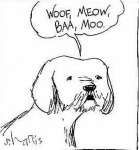
Since publishing his recent book, [The Social Animal](http://www.amazon.com/Social-Animal-Sources-Character-Achievement/dp/140006760X), David Brooks has been sticking with his new-found sociologist self more frequntly than than his older politically conservative one. His op-ed piece today in the NYTimes follows that trend. He argues against cutting the budget for a key section of the National Science Foundation, the Directorate for Social, Behavioral and Economic Sciences. He points to much recent research in the social sciences that revels the flaws in the classical model of human rationality and cognition.
> Yet in the middle of this golden age of behavioral research, there is a bill working through Congress that would eliminate the National Science Foundation’s Directorate for Social, Behavioral and Economic Sciences. This is exactly how budgets should not be balanced — by cutting cheap things that produce enormous future benefits.
His argument rests on losing a key access to our understanding of how humans behave that could be used in shaping policy. Yes, of course, but is there also a darker side to this move? The know-nothing climate in society and, especially, politics today might much rather stick with the incomplete and obsolescing model of a context-free world and humans that do nothing but maximize their utility.
Brooks adds a point almost in passing that is very critical to my story about sustainability. He writes:
> People are complicated. We each have multiple selves, which emerge or don’t depending on context. If we’re going to address problems, we need to understand the contexts and how these tendencies emerge or don’t emerge. We need to design policies around that knowledge. Cutting off financing for this sort of research now is like cutting off navigation financing just as Christopher Columbus hit the shoreline of the New World.
His comments are still a bit tainted by the language of Freud and classical psychology. We have no “selfs” at all in the sense of some inner being. We have multiple identities that emerge as a result of the routine actions we take. The actions depend on the context. It important to understand the two-step nature in order to avoid the error of attributing some sort of inherent and permanent human nature to people. Our identities are socially constructed by matching sets of activities to categories that are ascribed according to the specifics of those activities. A parent is a parent according to the actions being taken: changing diapers, feeding, teaching, playing with. These are all actions that most people would identify with parenting and would judge the actor on their own standards of what good or bad parenting should be. Exercising or going to the gym would not fit this identity.
Sustainability has become distant because our cultural story is based on two old notions that may have worked effectively in the past: our belief about reality-how the world works-and what it is to be a human being. I have recently posted a series of blogs that focus on the first of these, featuring complexity as the replacement for the reductionist, Cartesian model of reality. Brook’s column serves as a springboard for a focus on the second. His point that we need a new understanding of human action for policy has much broader implication. We need it to explain everything we do; to understand our addictions and bad social actions and to construct models for changing the “bad” behaviors to ones that will bring sustainability with flourishing, replacing the individual and societal pathologies of today.
My short hand for illustrating the difference between the old and alternate (not yet new in the sense of reigning within the current societal paradigm) view of identity is in the distinction between Being and Having. (It’s OK to begin to use “self” if you are aware it refers to a set of focused actions, not to something inside.) I discuss these at some length in my book. Being describes a mode of human existence characterized by taking care of a set of [socially constructed] important domains. I add the “socially constructed” modifier because these domains have been delineated by creating names for sets of related actions. Subsisting is one of those domains and comprises all the actions we perform in maintain the biological health of our bodies: eating, exercising, and so on. Participation entails the activities one does as a part of the social milieu: voting, serving on boards, and so on. Spiritual or transcendence is another with characteristic actions including; worshiping the god(s) of ones religion, celebrating one’s place in the web of life, and so on.
In my book and my work I divide up cares into a set of 11 domains only for analytic ease. These do not have distinct places in the body. They are created by repeated activities that embody the norms associated with the particular domain. They have arisen historically. A few can be traced back to the earlier periods of human existence when language was created to convert the world into meaningful objects, places, and actions and to coordination action (in these domains). Some, like membership, must have appeared later when distinct societal institutions came into being. Maslow’s hierarchy, which starts with subsistence and protection, can be interpreted in the same way without needing to invoke a psychological argument. I distribute his second tier, safety, to the various domains. protection for the body would fit into the bottom tier, subsistence. Using the descriptor, care, inherently, incorporates what Maslow calls the need for protection. Caring involves protection as an important factor in several domains. Need has nothing of this sense of intentional actions directed out word to the world.
In the next few weeks I will continue this discussion of care and its centrality to sustainability, and explicate the domains. Brooks’s is concerned that potential defunding of a critical area of research would set back the development of important and socially relevant scientific knowledge. Yes, but it would also push sustainability farther away.